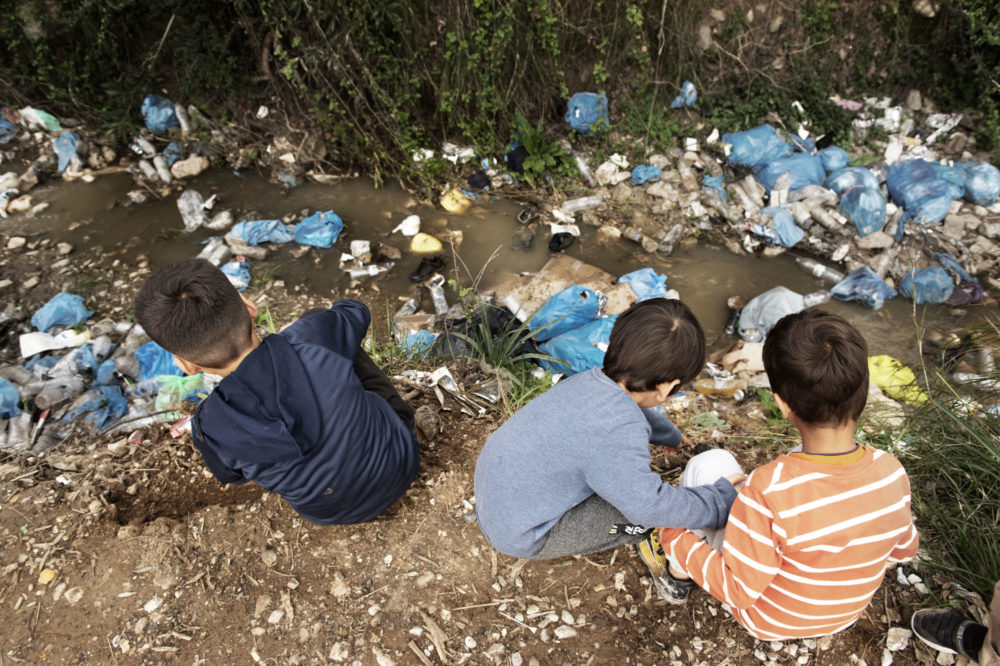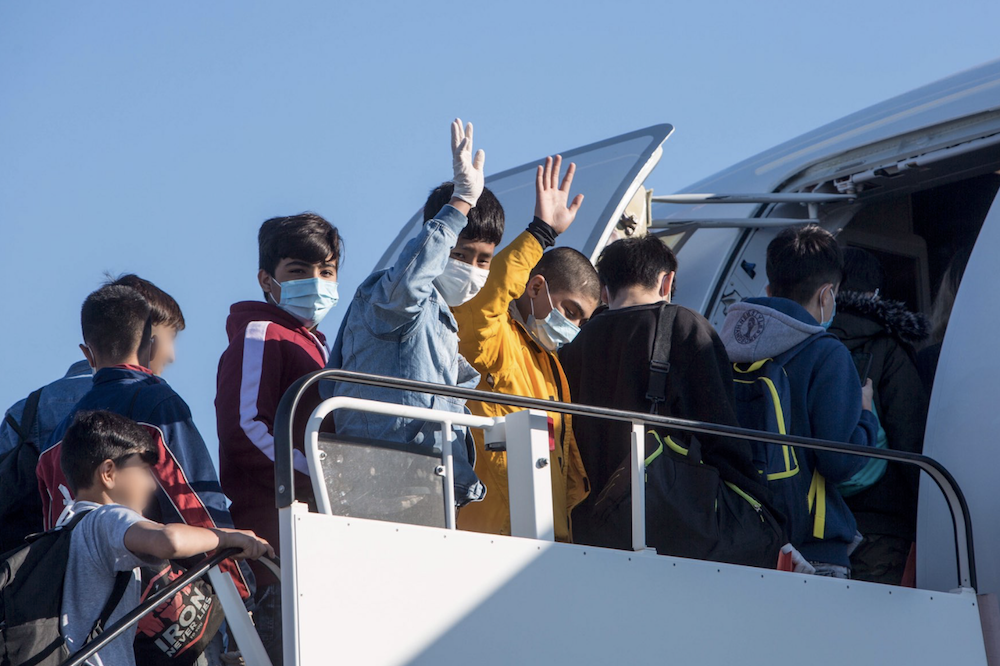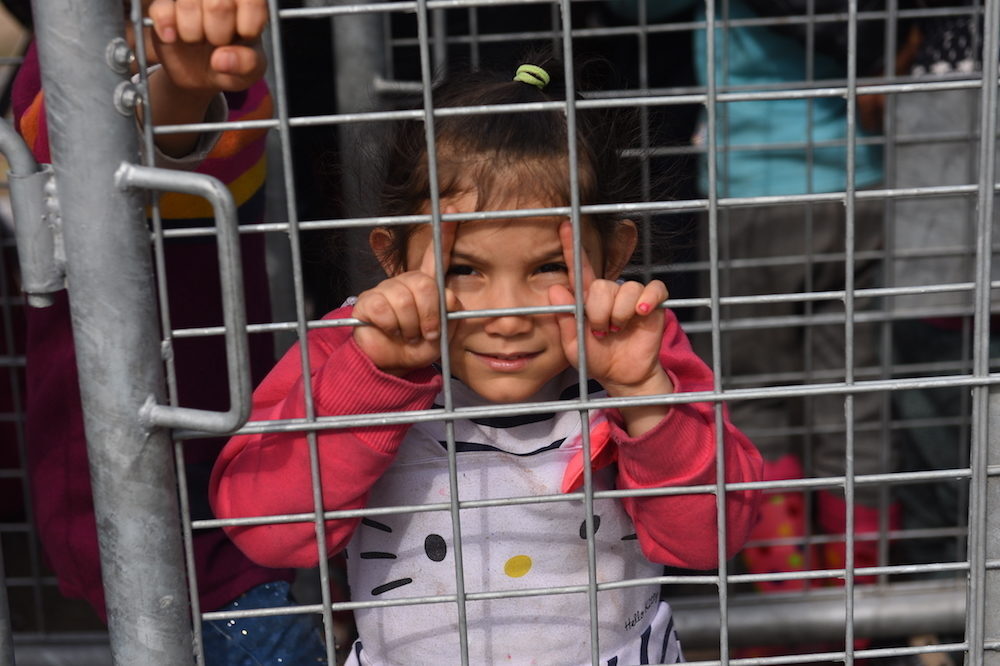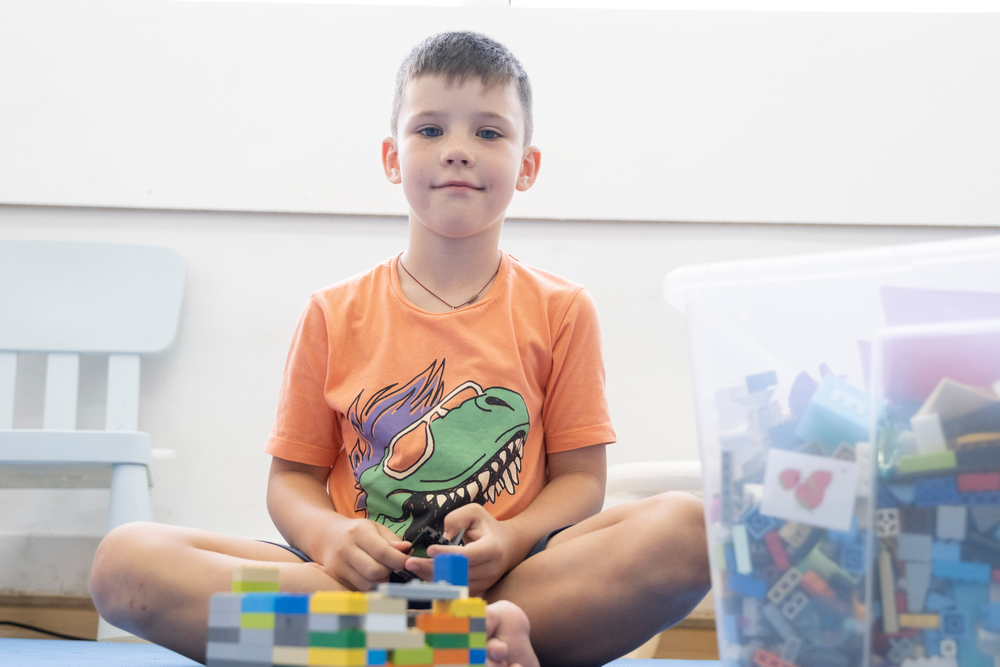
European countries must act urgently to help unaccompanied children in Greek refugee camps

Justin van Fleet, Refugees and internally displaced people
Theirworld has called for more to be done to provide education and a future for 1,600 minors living in overcrowded and dangerous conditions.
Theirworld has called on European countries to act urgently to end the plight of 1,600 unaccompanied children stranded in overcrowded and dangerous refugee camps on the Greek islands.
Several EU nations have agreed to offer a new home to the most vulnerable children and adolescents – many of whom have fled conflict and exploitation. But progress has been painfully slow, with fewer than 150 unaccompanied minors relocated.
Theirworld President Justin van Fleet said: “It’s unacceptable not to have a solution to the issue of unaccompanied minors – and even more criminal to simultaneously deny these children basic rights, including an education. By finding a longer-term solution we can unleash the positive potential and creativity this group of children can make on society.”
Conditions for children who arrived alone on the Greek Aegean islands were highlighted in a Theirworld report published last month. It also revealed that vital education services for thousands of refugee children on the islands will end in June without urgent help from the international community.

Theirworld and the emergencies fund Education Cannot Wait have been helping UNHCR, UNICEF and partner organisations to send girls and boys to non-formal school classes on the islands. But our research concluded that 20 million euros are needed to safely keep open educational programmes operated by the UN agencies and local aid groups for another two years.
There are 5,000 unaccompanied minors, some as young as seven, living as refugees or asylum-seekers across Greece, including those on the islands.
One of them is François. The teenager from the Democratic Republic of Congo is thousands of miles from home, living in an island refugee camp and struggling to learn a new language.
His education stopped in the fifth grade and he has been out of school for several years. The 17-year-old – who fled from his conflict-torn home country – finds learning Greek very demanding but is improving “bit by bit”.
François had been getting some non-formal education at a learning centre. But the coronavirus crisis has closed all forms of schooling and he doesn’t have parents or family to help him study.

Children in camps on the Greek islands are vulnerable to sexual abuse and trafficking (UNICEF / Olcer)
“I am alone… there is no solution,” says François.
Maysa Jalbout – a highly respected figure in international development, education and philanthropy who researched and wrote the Greek education report for Theirworld – said: “We can’t let the unaccompanied minors be lost to exploitation and crime. These little souls of the world can’t become victims of the guilty of this world.”
Under-18s living in the overcrowded camps on the islands of Lesvos, Kos, Samos, Chios and Leros have fled conflict, human right violations, abuse and lack of opportunity. They are extremely vulnerable to physical and sexual violence, including rape and trafficking. Many have gone missing or are living in precarious conditions to avoid possible deportation. After basic protection needs, education ranks as a high priority for them.
Moria camp on Lesvos hosts the largest number of unaccompanied minors. It has 1,100 – mostly boys between the ages of 15 and 17.
A 16-year-old unaccompanied girl from Afghanistan spoke about life in Moria to the Greek organisation Iliaktida, which supports vulnerable asylum-seekers. She said: “A dispute has erupted between different tribes. There is a great deal of fear in the community as to whether you belong to one race or another. There are people who constantly threaten to attack us at night with knives and kill us.”
Another unaccompanied Afghan minor – a 17-year-old with a nine-month-old daughter – said: “I have lived in Moria for about six months. The situation is tragic as people die every day, either from stabbings or fires. I am afraid for my child’s life and there is no information on when we will finally be able to move from Moria to better conditions.”
Among its recommendations, Theirworld’s report called on European countries to do more to reunite unaccompanied minors with their families across the continent. Up to a third have asked to be allowed to join relatives in Europe.
Last year, Greek Prime Minister Kyriakos Mitsotakis announced a Leave No Child Behind policy and urged the EU to share the burden of resettling unaccompanied minors. Eight countries said they would take in children.
Then on March 9, Germany announced it had formed a coalition of EU members ready to take on vulnerable children from the Greek islands.
But so far – even allowing for the effects of the coronavirus crisis – there has been a trickle of youngsters leaving for new lives. Last month, the first 12 arrived in Luxembourg, followed by 55 in Germany. This month saw 47 flown to the UK – where minors from Syria, Somalia and Afghanistan joined relatives – and 23 to Switzerland.
Portugal has promised to take 500 and Finland 100. Slovenia has also pledged to receive some children.
Following the relocation of 12 Unaccompanied Minors to Luxembourg, today 50 children departed #Greece for #Germany. @EASO is actively supporting this act of ???????? solidarity. pic.twitter.com/WNwPdUqbFt
— Nina Gregori (@NinaGregoriEUAA) April 18, 2020
Maysa Jalbout insists that much more needs to be done. In the Theirworld report, she said: “Mr Mitsotakis has not received sufficient support from the EU for his call to help unite unaccompanied minors with their families across Europe.
“Greater political will must be shown, while the humanitarian community and private donors must come together to support the plight of these minors by advocating hard for a resolution to their future in Greece and Europe.”
There may be renewed hope with the announcement last week that the Greek government has agreed the European Asylum Support Office (EASO) will oversee the relocation of the 1,600 unaccompanied minors. The European Union agency said it will match the children to countries by criteria such as family, linguistic and cultural ties.
Executive Director Nina Gregori said: “EASO is proud to facilitate this important scheme which not only shows tangible European solidarity for Greece but will also provide 1,600 vulnerable children with a chance for a safe new life. EASO already has extensive experience with relocation and has hundreds of personnel already in Greece.”
EASO told Their News it is up to member countries to make details of their plans public. Spokesperson Anis Cassar added: “Around a dozen member states have made such pledges. The ambition is to relocate all 1,600 unaccompanied minors within as short a timeframe as possible, despite the logistical challenges – including those that arise from the Covid-19 situation. It is expected that the number of relocations will start increasing as of June.”
More news

Theirworld’s mission to give children in crises a safe place to learn
